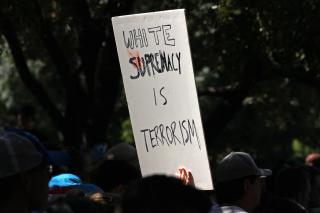On White Supremacy Culture and Why I Use These Words
A common “issue” in anti-racism work is the use of the term culture of white supremacy or white supremacy culture, which many people view as charged, controversial, or even deeply offensive. Sometimes there are even challenges/dismissals from people in positions of power/authority about it.
For me, use of the term is a necessity for these reasons:
- Because it’s used commonly by many prominent writers and speakers on the subject of race and privilege, and one cannot actively pursue this work without coming across it
- Because it’s very uncomfortable for me to read/write/say white supremacy culture on so many different levels, not the least of which has to do with sensitivities around my own national/cultural heritage, so it’s my way of directly challenging my own right to comfort
- Because when this term is used by someone from the dominant group (in this case, white), it is a very different experience, generally less antagonizing, and a bit more difficult to dismiss than when it comes from someone who’s marginalized (in this case, someone of color) — and it is a way that I exercise my privilege toward laying groundwork for others’ voices
- And lastly, because I have been asked to use these words by people in oppressed communities, both directly and indirectly, because “white supremacy culture” most accurately and succinctly describes the/their harsh experience of systemic discrimination. It is one of the ways in which I express my ally-ship.
| Date added | |
|---|---|
| Tagged as |

